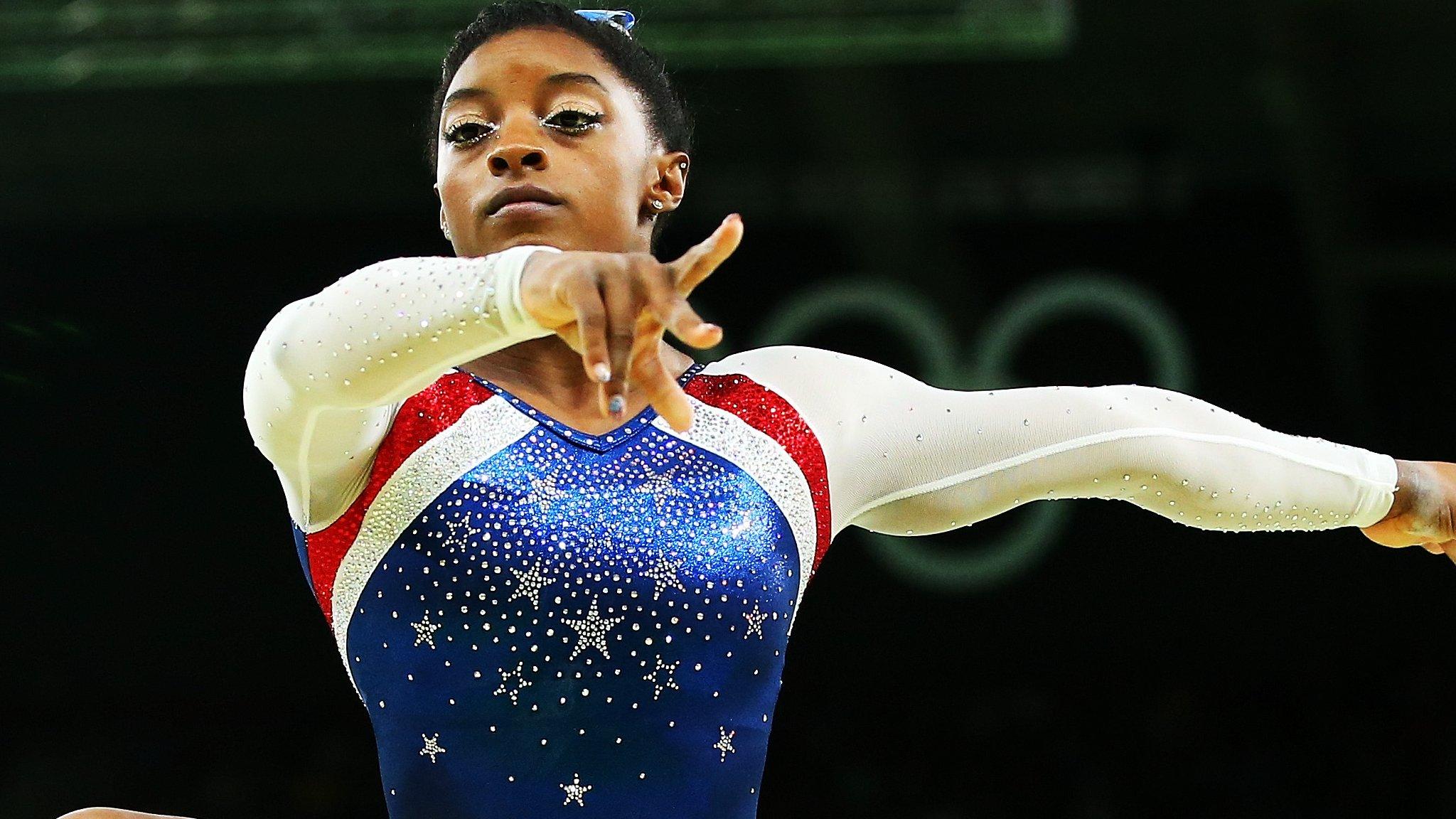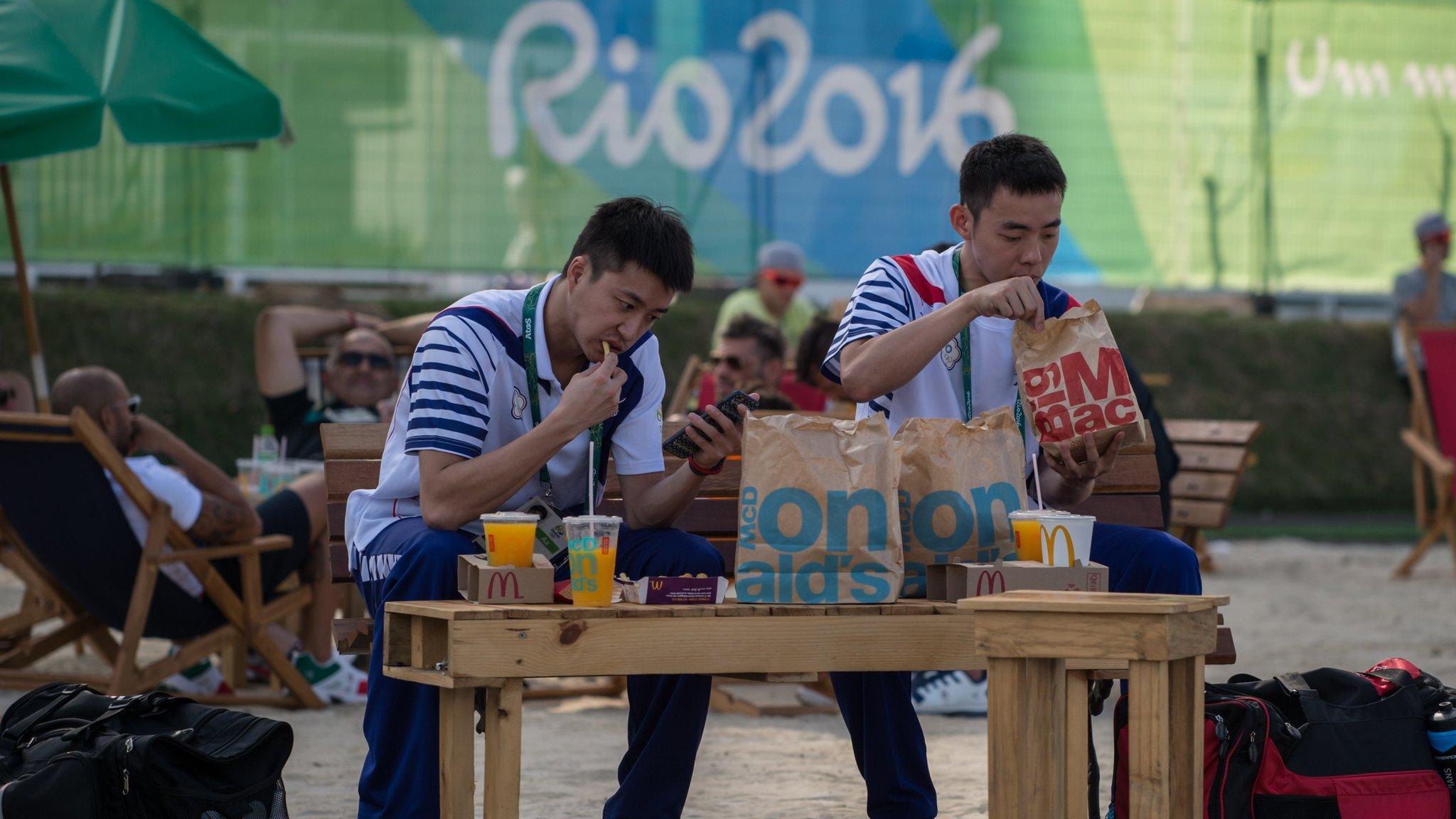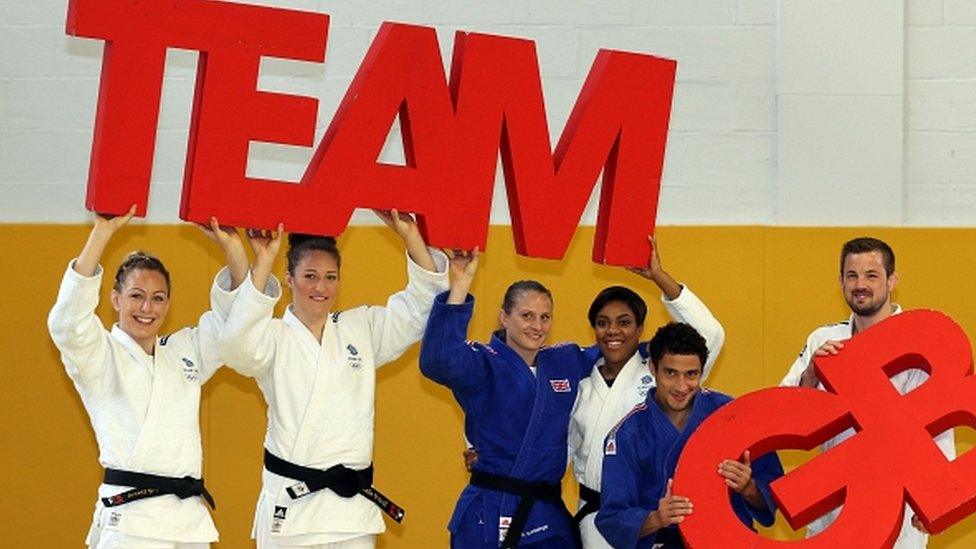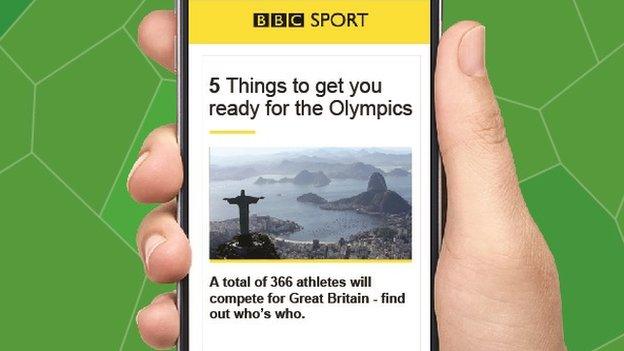Rio Olympics 2016: IOC rue empty seats in 'most difficult' Games ever
- Published
Rio 2016 has been the "most difficult" Games ever and crowd numbers are a "disappointment" according to the the International Olympic Committee (IOC).
John Coates, vice president of the IOC, acknowledged that swathes of empty seats at a number of venues have been a source of frustration for the body.
It has been in stark contrast to London 2012 where many events were sold out well in advance of the Games.
"This has been the most difficult games we have ever encountered," Coates said.
"I wish there were bigger crowds."
Organisers claim that about 84% if tickets have been sold, but many of the arenas have appeared sparsely populated.
"We did understand that they were distributing tickets to poorer folk and school kids, but we are still not seeing them at any of the venues," Coates said.
"That's a disappointment, but the quality of the sport is certainly rising to the occasion."
Australian Coates says there are "no regrets" about hosting the Olympics in Rio because "it is important to spread the Games" although it has been a "greater challenge" than the IOC anticipated.

Even football matches involving the Brazil national team at the Olympic Games have not sold out
'Sill issues with transport'
New Zealand's Sonny Bill Williams was injured in his side's defeat to Japan in the rugby sevens and the ambulance which took him to hospital became lost en route.
Coates accepted that are still some problems, particularly with transportation, to be solved to ensure the remainder off the Olympics goes smoothly.
"We had a bad problem with Sonny Bill Williams - the ambulance driver didn't know where the hospital was," he added.
"That wasn't a concussion, but those are the things they are dealing with every day."
- Published11 August 2016
- Published12 August 2016

- Attribution
- Published10 August 2016

- Published18 August 2016

- Published3 August 2016

- Published19 July 2016

- Published3 August 2016
